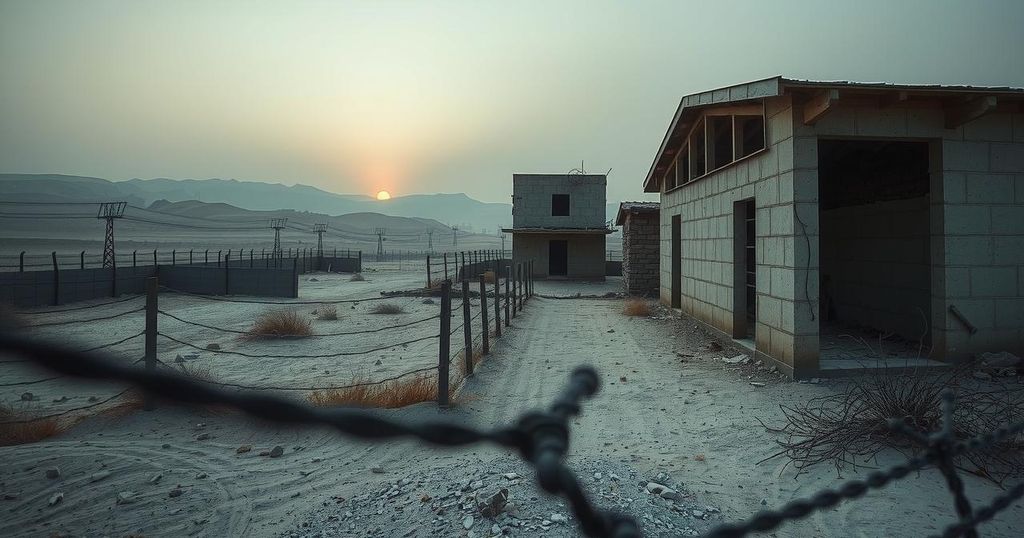Panorama prison in north-east Syria houses around 4,500 detainees, many of whom have been isolated from the outside world for six years. IS is reportedly reinvigorating itself amidst the political turmoil following the collapse of the Assad regime. Rights groups criticize the indefinite detention of foreign nationals without trial, highlighting deteriorating conditions and potential human rights violations.
In a desolate prison in north-east Syria, approximately 4,500 men are held captive, their lives untouched by the world for six years since the fall of the Islamic State’s caliphate. Prisoner Muhammad Saqib Raza expressed profound ignorance about global events, revealing that he had only recently learned about the U.S. presidency from a visiting human rights worker. The prison operates under stringent conditions, with strict prohibitions against communication devices and information, aiming to prevent unrest among the detainees.
The situation outside is dire, as IS remnants are reportedly becoming active again, exploiting the vacuum left by the regime’s collapse. Kurdish officials warn of a resurgent IS, particularly as the collapse of Assad’s rule creates a power void. The Panorama prison director noted that IS has taken advantage of this instability to make gains in territory and weaponry, with potential plans to target the prison directly.
Currently, the Kurdish authorities manage about 65,000 suspected IS affiliates, emphasizing the need for their home countries to repatriate detained foreign nationals. Rights organizations have continuously condemned the unlawful detention of foreign fighters. Kurdish officials express concerns that the weakening of the local security structure may lead to assaults on detention facilities, which could result in mass escapes and renewed IS activities.
Amidst these tensions, past prison attacks, such as the 2022 incident where hundreds escaped, serve as grim reminders of the fragility of prison security. Prisoners like Raza argue that they are unfairly linked to IS ideology, with claims of innocence or past coercion into joining the group. However, others, such as Mustafa Hajj-Obeid, openly shared their experiences with IS, but the lack of legal process amplifies their plight.
In a troubling irony, prisoners enduring worsening conditions are denied trials, facing potential indefinite detention without charges. Claims of mistreatment, including inadequate access to basic necessities, have been reported along with human rights violations. The absence of legal redress raises serious ethical questions regarding the complicity of foreign governments in the continued detention of their nationals without trial.
The situation in Syria’s IS prisons highlights significant human rights concerns regarding the indefinite detention of suspected militants without due legal process. As remnants of IS attempt to regroup and exploit the current instability, the international community faces mounting pressure to address the plight of thousands of detainees held under harsh conditions. The absence of repatriation options and the lack of accountability raise critical questions about justice and human rights.
Original Source: www.theguardian.com




